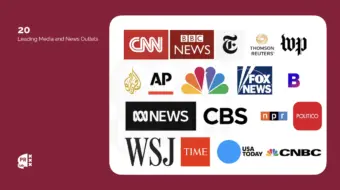News Analysis
The “Road Map” for peace in the Middle East issued by the “Quartet” (European Union, Russia, United Nations and U.S.) can prove helpful in achieving a just peace – but only if the peoples of the world, especially those of Palestine, Israel, and the U.S., compel the Israeli government and the Bush administration to accept a just solution.
A just solution has long been known and widely accepted: a two-state solution with Israel and Palestine existing peacefully and equally alongside each other. There is also a world consensus on most issues of contention between the Israeli government and Palestinian Authority. The border would be the 1967 border, with minor adjustments; Israeli settlements in the occupied territories would be dismantled; the right of return of Palestinian refugees would be exercised through negotiation between the two parties with most refugees compensated and provided with land outside of Israel as defined by its 1967 border; and East Jerusalem would be the capital of Palestine with arrangements for control over religious sites.
What has prevented implementation of this solution has been the interests and policies of the most reactionary sector of Israeli big capital now represented by the Sharon government and those of a similar sector of U.S. transnational monopolies now represented by the Bush administration. The Israel-U.S. alliance exists above all because both want the region’s Arab countries compliant with the exploitative needs of U.S. transnationals and Israeli big business. What they fear most is the development of democratic, left, anti-imperialist governments. While the interests of the Sharon and Bush governments sometimes diverge, the U.S. wants Israel to remain the dominant military and economic power in the area.
The brutal occupation, indignities and impoverishment inflicted on the West Bank and Gaza, and the indiscriminate murder of Palestinian men, women, and children by the Israeli army, are an embarrassment to the Bush administration, undermining its humanitarian pretensions and interest in maintaining conservative Arab regimes. The administration would prefer a settlement that leaves a compliant Palestinian state.
Now Sharon admits the occupation cannot be sustained politically, economically and militarily. He rejects as impractical the extreme hawks’ call to drive all Palestinians out of Palestine, leaving a “greater” Israel.
The Road Map is a compromise stitching together positions favored by the Palestinian Authority, supported by three Quartet members, with positions favored by Israel and mostly supported by the U.S. By the end of 2005 the Palestinian people are to have their own state with final boundaries and Israel is to have normal relations with its neighbors and a cessation of cross-border attacks.
It is possible to argue the text provides for the just settlement discussed above. But it is also possible to argue the borders of a Palestinian state will include much less territory than those of 1967, and the right of return is not assured even in principle.
The Road Map provides for an Israeli military pullback to Sept. 2000 positions, a ban on settlement expansion and, later, dismantling settlements. But all timelines can be interpreted as conditional.
It is clear the Sharon government will use any acts of violence against civilians as an excuse not to carry out provisions of the plan. Sharon will also use fear of being outnumbered by returning refugees, and thereby losing Israel as a state, as an obstacle to accepting the right of return in principle and achieving a just, practical solution of this issue.
One can also be critical of the Road Map’s provisions regarding the structure and functioning of the Palestinian government as interference in Palestinian internal affairs. The Palestinians, in endorsing the Road Map, indicate they will fight for their interpretation of its ambiguities and believe they have already taken steps that make these provisions moot.
There is now a certain momentum. It is clear the Bush-Sharon-Abbas summit will not be torpedoed by Sharon and will involve some minimal steps required by the Road Map. The struggle ahead will be long, hard and complex.
Only the Israeli people (56 percent favor the Road Map) and the Bush administration ($3 billion annual military aid to Israel) have the leverage to push Sharon each step of the way. Until now Bush has shown little appetite for that.
This is where the U.S. peace movement comes in. There may be momentum now to make headway toward a just solution, before we get too close to the 2004 elections when Bush will try to appeal to more backward Jewish voters by avoiding the appearance of pressing Sharon. Bush hopes to swing a section of the Jewish people who voted 70 percent against him last time. Here American Jewish progressive and peace advocates have a special responsibility.
The author can be reached at pww@pww.org











Comments